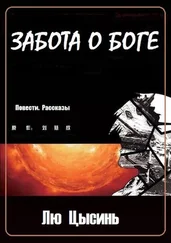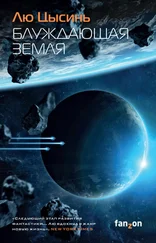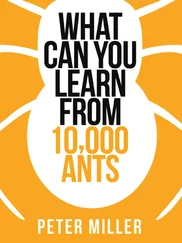‘What was that? Did the sun just get brighter?’ Jolie asked.
‘No, Field Marshal, that was the arrival of a new sun. The moon is reflecting its light. A sun has appeared over Laurasia and is frying the continent as we speak.’
‘Gondwana’s sun should appear any moment now.’
‘Isn’t that it there?’
Intense light flared in the west, inundating everything around it.
The two ants watched agog as a dazzling sun began rising swiftly over the western horizon. It swelled until it occupied half the sky, and incinerated everything on Earth in an instant.
The shockwaves from the explosion took several minutes to reach the ants, but they had been vaporised by the heat long before that. All life was consumed in the furnace.
That was the last day of the Cretaceous period.
It had been winter for the last 3,000 years.
At noon on a slightly warmer-than-usual day in central Gondwana, two ants climbed out of their deep subterranean nest and up to the surface. The sun was but a blurry halo in the dreary, overcast sky and the ground was covered with a thick layer of ice and snow. Only the occasional outcrop interrupted the endless white expanse. Away on the far-distant horizon, the mountains were also white.
The first ant stared up at the colossal skeleton rising out of the snow. The plains were littered with such skeletons, but because they were white too, they were usually indiscernible. Today, though, from where the ant was standing, the bones were silhouetted in sharp relief against the murky sky.
‘This was an animal called a dinosaur, wasn’t it?’ said the first ant.
The second ant turned to gaze at the skeleton in the sky too. ‘That’s right. Like in that story they were telling us last night about the Age of Wonder.’
‘That was such a good story. A golden age for us ants, way back in the past, thousands of years ago…’
‘It’s hard to imagine, isn’t it? Ants living in huge cities up on the surface instead of in nests deep underground. “Age of Wonder” sounds about right! And they didn’t hatch from eggs laid by queens either – that’s pretty hard to get your head round as well.’
‘The bit I liked most was how ants and dinosaurs created the Age of Wonder together, by collaborating with each other. Remember that part? How the dinosaurs lacked dexterous hands, so the ants did the skilled work for them. And how the ants lacked clever minds, so it was up to the dinosaurs to invent incredible new technologies.’
‘Yes, I liked that too. Together they created so many massive machines and sophisticated cities – they were like gods!’
‘Did you understand that stuff about the destruction of the world?’
‘Not really. It seemed rather complicated. War broke out in the dinosaur world, and then between the dinosaurs and the ants.’ The second ant paused. ‘And then two suns appeared on Earth.’
The first ant shivered in the cold wind. ‘Oh, a new sun would be great right now.’
‘You really didn’t get it, did you! The two suns were terrible. Way too hot. They incinerated everything on Earth.’
‘Then why is it so cold now?’
‘It’s confusing, but I think it goes something like this. For a time after the two suns appeared, the world was, as you’d expect, very hot. So hot that the parts of the Earth’s crust closest to the suns became molten. Then all the seawater that had evaporated in the heat fell as rain for more than a hundred years, causing catastrophic flooding across the planet. After that, the dust that had been lifted into the atmosphere by the explosion of the new suns blocked the light of the old sun, and the world became cold, even colder than before the two suns appeared – the way it is today. The dinosaurs were big – very big; humongous big – so naturally they all died during those terrible times, but some ants survived by burrowing underground.’
‘Wouldn’t it be great if antkind could re-create the Age of Wonder. Just think…!’
‘Yeah, it would. But from what they were saying last night, that’s never going to happen. Our brains are too small, and we can only think as a group, so we don’t have the capacity to invent amazing new technology. And all the ancient technological knowhow has been forgotten.’
‘If only ants could still read, we could study the books from back then and rediscover the knowhow that way. Some of us were able to read even up until quite recently, apparently – did you know that? But not any more.’
‘We’re regressing. At this rate, we’ll soon just be tiny little insects that know nothing except how to build nests and forage for food.’
‘What’s so bad about that? When times are hard, like they are now, what’s the use of knowing stuff?’
‘True.’
Both ants fell silent for a long while.
‘D’you think there’ll ever come a day when the world is warm again and some other animal brings about another Age of Wonder?’
‘It’s possible. Such an animal would have to have a large brain and dexterous hands.’
‘Right. And it couldn’t be as big as the dinosaurs. They ate too much. Life would be very difficult for an animal that size.’
‘But it couldn’t be as small as us, either, or its brain wouldn’t be powerful enough.’
‘D’you think such a miraculous creature might emerge?’
‘I think it will. Time is endless. Everything comes to pass eventually, I tell you. Everything comes to pass.’

CIXIN LIUis China’s #1 SF writer and author of The Three-Body Problem – the first ever translated novel to win a Hugo Award. Prior to becoming a writer, Liu worked as an engineer in a power plant in Yangquan.
Liu Cixin’s writing will remind SF fans of the genre’s golden age, with its positive focus on scientific development, combined with a consistently constructive vision of China’s future role as a global superpower. It’s characteristic of an SF genre which has been embraced by Chinese culture because it is seen as representing the values of technological innovation and creativity so highly prized in a country developing more quickly than any other in the world today.
– Damien Walter,
The Guardian
Liu Cixin has put his exuberant energy to good use, erecting a gallery that must be measured on a scale of light-years. Inside this gallery of his, he has stored away marvels beyond imagination produced by the science and technology of cosmic civilizations. The moment you step into Liu Cixin’s world, the rush of his enthusiasm buffets you like a particle storm – a storm of enthusiasm for science and for technology; And it is this enthusiasm that bears the heart of his world’s magnificent galaxy. We can find it reflected not only in the grand vistas he creates, but also in the fateful decisions of his characters. The stark contrast of his grand worlds against the choices of these lonely and feeble beings can be truly shocking!
– Yao Haijun, editor in chief of “Science Fiction World”
First and foremost, as a reader, I very much enjoy and find great satisfaction in Liu Cixin’s stories. The stories he tells are incredibly lucid, their language is conversant, their rhythm is tightly woven and their plots exceedingly compelling. Their imagery is unique, they have a boundless quality about them and they are brimming with powerful language; In these ways he echoes the great Taoist philosopher Chuang-tzu. What is more, I truly adore technology and industrial culture and consider them to be very exquisite, serious and atmospheric, almost holy. Liu Cixin’s stories reflect this sentiment of mine. Therefore, I at times think that he echoes Newton. Finally, there is the military side of things. One does not have to look far to see his innate passion for all things to do with weaponry. In Liu Cixin we can see a stubbornness, a heroic ideal of centuries past.
Читать дальше
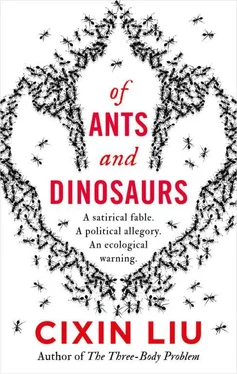

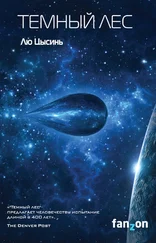
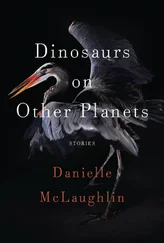
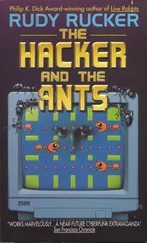
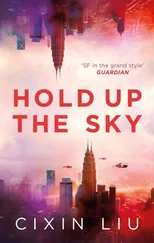
![Лю Цысинь - Эпоха сверхновой [litres]](/books/393110/lyu-cysin-epoha-sverhnovoj-litres-thumb.webp)
